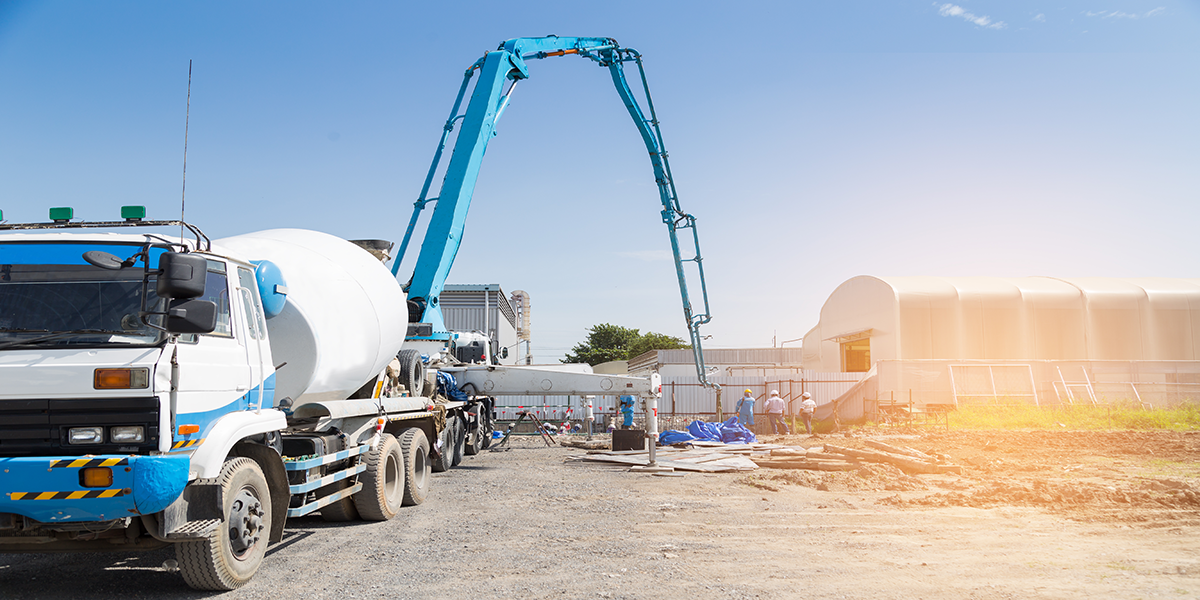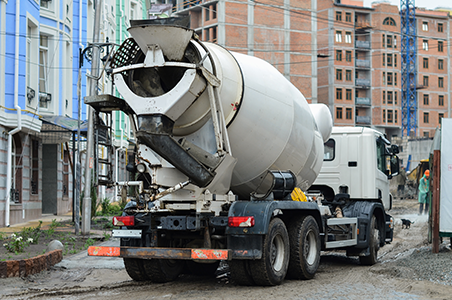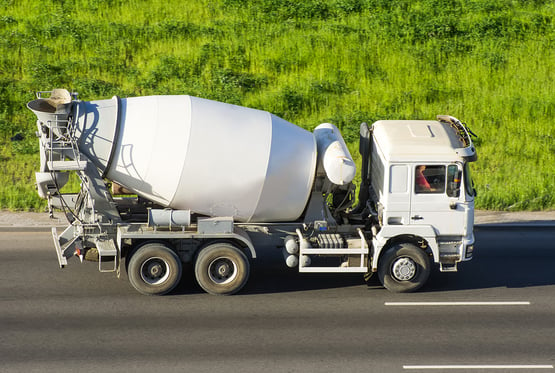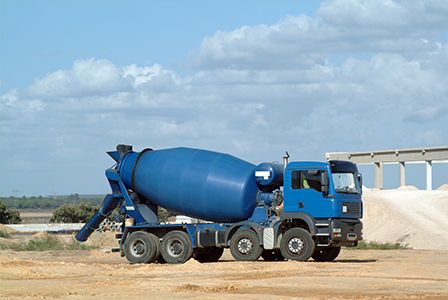3 min read
4 Concrete Mixer Truck Service Tips for Fleet Optimization
LubeMinder Team
:
Jun 21, 2023 4:55:32 PM

Ever have a mixer truck break down on the job site? Not only is it frustrating, it’s also costly. The construction industry relies heavily on the use of concrete mixer trucks. Optimizing your fleet means ensuring all concrete mixer truck service is up to date and understanding the capacity of each machine. By optimizing a fleet's resources, businesses can maximize efficiency and reduce operating costs in the long run.
Mixer trucks also reduce labor costs by automating the loading process and eliminating manual labor associated with carrying buckets of concrete from a single source. As a result, businesses are able to save money, reduce project timelines, and maintain quality control throughout their projects - provided those trucks run smoothly and don’t become a greater expense than benefit.
A preventative maintenance plan gets you ahead of potential breakdowns. This means more reliability for both the fleet operation and the revenue.
Concrete Mixer Truck Service Inspection Points for Optimized Truck Performance
Due to the strain they are put through daily, mixer trucks require regular maintenance and inspections to ensure they run safely, smoothly, and efficiently. This prevents costly mishaps and breakdowns.
Suffice it to say, staying ahead of potential issues with one mixer – or your entire fleet – requires being proactive. Four elements of routine maintenance that should be on your checklist include:
- Engine and transmission inspections
- Brake system checks
- Tire maintenance and rotation
- Lubrication and fluid level checks

1. Engine and Transmission Inspections
Engine and transmission inspections are important parts of regular concrete mixer truck service. These inspections typically involve checking the engine oil, transmission fluid, and all filters to ensure they are clean, full, and not contaminated. Additionally, the spark plugs must be cleaned or replaced as needed and belts should be checked for wear or fraying.
Technicians should also inspect the fuel lines, hoses, wires, and other components of the engine/transmission systems to ensure they're in working order. Any signs of corrosion or leaks should be addressed immediately before they cause further damage.
Regularly inspecting the engine and transmission is key to extending the life of these components as it can identify potential problems before they become major issues.
2. Brake System Checks
Mixer trucks require frequent inspections of their brakes, including - but not limited to - checking for wear or damage to the:
- Pads
- Rotors
- Calipers
- Hoses
- Lines
It’s also important to inspect the master cylinder and check if there are any leaks or other problems within the system. Inspecting the parking brake cable and linkage should be done regularly.
Regular brake fluid flushes are also essential in order to prevent any build-up of moisture or contaminants that may lead to corrosion within the system. Brake pads should be replaced as needed depending on the specific brake pad material used.
Visually inspect all components of the braking system at least twice per year, or more frequently if advised by the technician and if the truck is driven in adverse conditions.
3. Tire Maintenance and Rotation
Tire wear can vary significantly depending on the number of hours that are driven daily, as well as the road conditions.
Uneven tire wear can be an indicator of misaligned steering components or suspension that needs to be inspected and possibly serviced by a professional. Regularly rotating tires should also be done in order to maximize their life and maintain even tread wear. Additionally, inflating tires to their recommended pressures will help with fuel efficiency and braking performance.

4. Lubrication and Fluid Level Checks
The operator should create and follow a regular concrete truck maintenance schedule to ensure that all necessary lubrication and fluid levels are checked routinely.
The engine, transmission, hydraulic system, differential, and brakes should be regularly checked to make sure they have the correct amount of oil or other fluids. If any parts require additional lubrication or fluids, this should be done immediately so the parts remain in proper working order.
Are Automatic Lubrication Systems Worth the Investment?
Automatic lubrication systems can be a great way for operators of concrete mixer trucks to save time and money. These systems work by automatically distributing the correct amount of oil or other lubricant to each part of the truck, meaning that no manual lubrication is required.
Automatic lubrication systems reduce waste due to over-lubrication, as they are designed to ensure only the necessary amount of lubricant is used. They are more reliable than manual methods since there is less room for human error in their operation. The need to shut down the truck and manually check and fill each component is eliminated with an automated system, saving time and labor costs.
Investing in an automatic lubrication system can help concrete mixer truck operators save time and money on maintenance operations.
For more installation and service videos, visit our videos page.
Document Regular Maintenance
Documenting completed maintenance activities can help establish a baseline for future inspections or repairs. This can also provide helpful data points for creating an effective preventive maintenance plan.
Keeping up with documentation also allows operators to spot trends over time that could indicate potential problems before they become more serious and expensive to repair. Having accurate maintenance documentation also helps to protect the operator in the event of a warranty claim or other legal issue.
Concrete Mixer Truck Service | Looking Ahead
Maintenance is critical to the safe and successful operation of concrete mixer truck fleets. Investing in a preventive maintenance plan can help operators anticipate and address potential problems before they become more serious or expensive, as well as keep accurate records to protect themselves in any legal matters that may arise.

Interested in Automatic Lubrication for Your Fleet?
Saving on manpower, lubricant waste, and extending the lifespan of the fleet are all reasons to consider investing in an automatic lubrication system. For more information on these systems and the impact to your operation, these blogs are worth the read:
Automatic Lubrication System: 6 Functions and 5 Benefits
Automatic Grease Systems | 5 Qualities You Need

